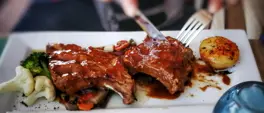'The Menu': An unnervingly chaotic tale on the price of commodifying passion
Devon Thomas
17 February 2023 | 10:00Through its masterclass on character-driven storytelling, Mark Mylod's 'The Menu' (2022) transcends it from being tasty satire on the restaurant industry to a bitterly uncomfortable study on the aftermath of the artist selling their soul, writes Devon Thomas.
REVIEW
Contains major spoilers.
There’s a weird dichotomy that comes with commodifying passion, particularly when it's rooted in creativity.
On the one hand, passion is what drives creativity, at least for me. I’m happiest when I’m doing the things I love to do, and when I invest my energy into something I love, I’m almost always going to eat.
On the other hand, in a hyper-capitalist society, passion does not put the food on the table.
Sure, I’d probably still do what I do for free, but bills will never pay themselves. As such, unless I want to be stuck in a humdrum job, I have no choice but to commodify the things I’m most passionate about.
The tension between the dichotomy of working to survive versus working for purpose heightens when you throw ambition into the mix.
To be frank, my ambitions terrify me, not because they’re unrealistic – which I’ve been told they are – but because I’m not certain of how much it would cost to not only be great but to be prolific.
That pretty much sums up the mission statement for The Menu, and it is why I was able to, albeit uncomfortably, identify with its antagonist.
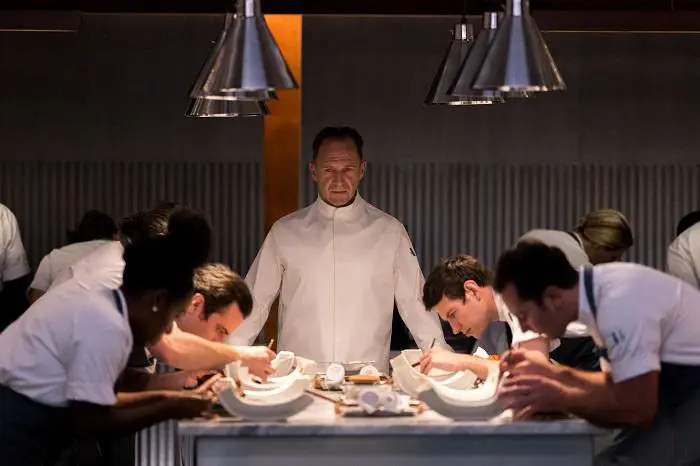
According to IMDb, The Menu follows a young "couple" that "travels to a remote island to eat at an exclusive restaurant where the chef has prepared a lavish menu, with some shocking surprises".
That is a barebones synopsis if ever I saw one.
To get the formalities out of the way, The Menu is a technical marvel to witness: the directing is excellent, the script is smart, the performances are exceptional, and the cinematography is crisp AF.
But the thing I enjoyed the most about the film was its story and how it was used to construct its underlying themes.
On an immediate, connotative level, The Menu is a satirical commentary on the restaurant industry as well as capitalism’s commodification of food.
To be honest, if this was the entirety of the film, I would have still given it a Certified Fresh rating on Rotten Zomatoes.
What elevates the film from being simply a cool comedy-horror take on the business of food is its introspection on the price of ambition that began from passion through the depiction of its absolutely unhinged primary antagonist: Chef Slowik (Ralph Fiennes).
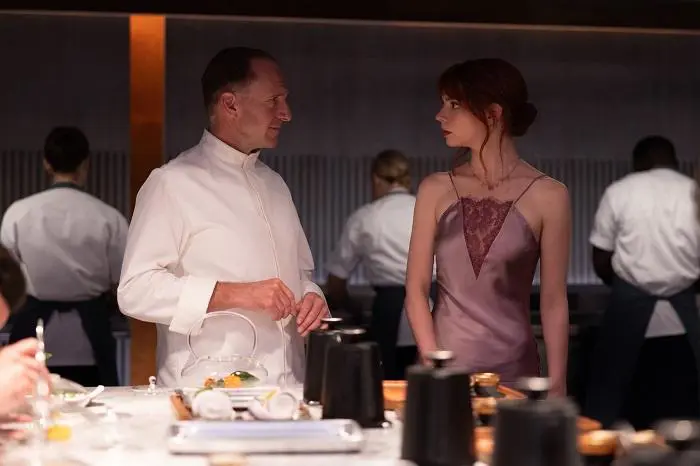
Slowik is a world-renowned chef in the veil of a Gordon Ramsey and from the onset, the viewer is groomed to revere and later fear him.
Not only is his fancy-pants menu a fine dining experience but it’s touted as a one-of-a-kind fine dining event that only the luckiest (read: the 1%) get to enjoy. Like, you literally need to go to a remote island for it.
Once there, it is almost immediately apparent that there are some heavy cult vibes, here where its head, Slowik, not only steers the ship, but masters it.
See, Slowik has reached a level of notoriety that those ambitious enough crave to be their endgame. The way Fiennes and the story portrays Slowik, he comes across as a demigod who has a particular interest in the happenings of the Bible's Old Testament chapters.
But in his relentless pursuit of brilliance and fanatical reverence, Slowik pays the ultimate price: he sacrifices his passion.
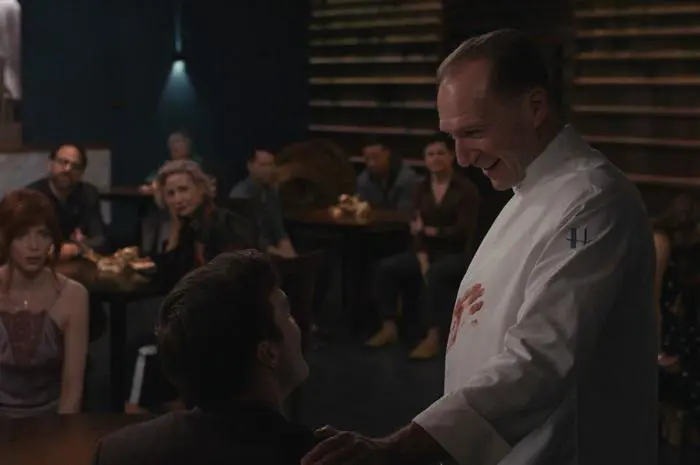
Herein lies the central subtextual conflict of The Menu: what happens to (creative) passion after it gets consumed by ambition that has its beginnings in capitalist ideology?
Capitalism for the creative grooms us to believe that it’s not good enough for one to find happiness in just the opportunity to create, but that we will only find true happiness - true success - if the pursuit of our passion comes with wealth, power, and status.
In this sense, The Menu becomes an incredible character study of how that might present itself in its most denotatively sinister form: not only does Slowik want to give his guests a once-in-a-lifetime experience, but he wants his magnum opus to be something worth dying for.
This takes the consequences of Slowik sacrificing his art from a figurative analysis to a literal one, because by the end of the night, everyone including Slowik himself would literally be consumed by fire (via a deconstructed s’more, an American dessert known for its excessive amount of sugar).
Is this a metaphoric depiction of the cost of selling your soul (read: passion) to the devil (read: capitalism)?
Seems like that to me.
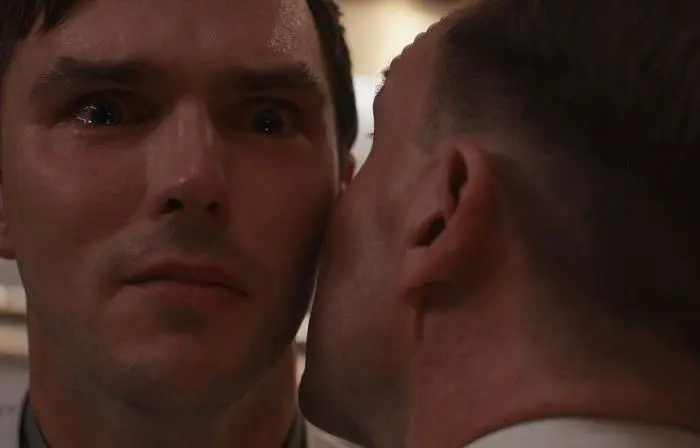
Beyond its technical prowess and overall entertainment value, this is why The Menu stuck with me long after I watched it, and why it has since become one of a handful of films that I’ve garnered a tangible personal attachment to.
No matter how much I try to distance myself from the film, I can’t help but fixate on whether I, too, would succumb to the weight of my ambitions and be willing to sacrifice my passion, my purpose, along the way.
I’m not 100% sure if I can answer that question honestly.
The subtextual posit of that question and the long-term implications of having to confront that reality is where the true horror of The Menu lies: not the chef gone mad, but the potential that I could also lose the thing I treasure the most.
And not because of anyone else - but because of myself.
Giving it a savoury 9/10.
You can stream The Menu on Disney+ now.
Get the whole picture 💡
Take a look at the topic timeline for all related articles.















